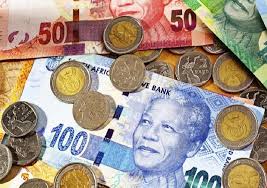South Africa’s deputy finance minister was quoted in a leading newspaper on Sunday as urging the central bank to temporarily create money to fund the government response to the COVID-19 pandemic and its economic fallout.
In an interview with the Sunday Times, David Masondo called on the government to avert a 1930s-style depression by getting the central bank to buy government bonds directly to fund the country’s deficit during the coronavirus crisis.
“Such bonds must be once-off special bonds with earned proceeds, and should be treated as a temporary measure with a clear exit plan,” he was quoted by the paper as saying.
“Such money from the SARB (South African Reserve Bank) must be used for immediate COVID-19 health-related interventions and ... economic recovery measures,” he added.
A central bank spokeswoman did not immediately respond to a request for comment.
President Cyril Ramaphosa last month announced a record 500 billion rand ($26.3 billion) rescue package equalling 10% of the GDP of Africa’s most industrialized nation, to cushion the economic blow of the coronavirus pandemic. Since then debate has stirred as to how it is to be funded.
Ramaphosa has approached the IMF and World Bank, a sensitive issue in a government that has generally been hostile to the so-called Washington consensus.
Masondo is a former youth leader of South Africa’s Communist Party, but since Ramaphosa appointed him a year ago he has been a strong advocate of tough economic reforms, including clamping down on excessive government spending.
In an unprecedented move in March, the bank central did begin a programme of buying back government bonds from the secondary market to inject liquidity and prevent lending from seizing up.
But the idea of the central bank purchasing government debt directly to fund the deficit would most likely cross a red line for Finance Minister Tito Mboweni, a fiscal conservative who believes in central bank independence.
The government would also be keen to avoid a situation like neighbour Zimbabwe, whose runaway money-printing to pay its bills triggered massive hyperinflation a decade ago.
Latest Stories
-
Community Digital Fair inspires a new generation of digital thinkers in Ningo-Prampram
4 minutes -
Today’s Front pages: Thursday, June 19, 2025
8 minutes -
We’re monitoring all aspirants in the race – Justin Kodua declares
31 minutes -
We’re addressing our internal issues – Justin Kodua
41 minutes -
Works and Housing Minister inaugurates State Housing Company Board, two others
46 minutes -
Opoku-Agyemang engages NDC leadership
53 minutes -
Justin Kodua attributes NPP’s 2024 loss to global wave against incumbents
55 minutes -
NPP presidential primaries not skewed to favour any candidate – Justin Kodua
1 hour -
Parliament takes major step towards strengthening economic governance
1 hour -
IFC urges banks to increase lending for sustainable buildings
1 hour -
‘Be measured in commenting on… issues,’ Supreme Court nominee urges chiefs on bench
1 hour -
Governor Asiama urges banks to develop customer-centric products
2 hours -
Samini reveals Mahama and judiciary actions make him a happy Ghanaian
2 hours -
Ghana Armed Forces set to employ thousands soon – Defence Minister announces
2 hours -
Telecel Ghana Foundation donates 100 laptops to KNUST to support deprived students
2 hours

